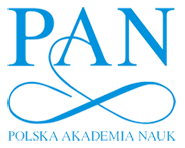Statement of the Committee of Human Genetics and Molecular Pathology of the Polish Academy of Sciences on genetic tests for the presence of SARS-CoV-2 of June 12, 2020
The Committee of Human Genetics and Molecular Pathology of the Polish Academy of Sciences has intensively joined the discussion on the methods of fighting the SARS-CoV-2 pandemic, with genetic methods at the forefront. It brings together the most eminent national specialists in this field. The current state of the epidemic in Poland prompts the Presidium of the Committee to present conclusions in this matter:
1. At the present state of knowledge, the number of confirmed cases of coronavirus infection depends on the extent to which mass genetic tests detecting SARS-CoV-2 infection are actually carried out. Testing is the only objective way to assess an epidemic and its evolution. The detection of asymptomatic vectors is a critical step in breaking the chain of horizontal transmission. An effective policy in this regard, in addition to the obvious gains in public health, leads to significant macroeconomic savings.
2. According to the latest data from the European Center for Disease Prevention and Control (ECDC), Poland is one of the two European countries where the level of infection continues to increase. Hence, the still disturbingly low number of SARS-CoV-2 genetic tests performed in Poland should be radically increased at the level of the entire population, not only in the areas of already identified infection foci. In the face of active horizontal transmission, they will probably continue to appear in a way that is not always predictable.
3. Mass tests should be carried out by competent laboratories, identified from the list of COVID-19 laboratories of the Ministry of Health; Out of 153 entities present on it (as of June 10, 2020), only some are able and willing to perform tests in the high-throughput system.
4. The SARS-CoV-2 genetic analysis system should be centrally harmonized logistically on a national scale - currently some regions, including infection outbreaks, suffer from the inability to perform the tests efficiently, while in other regions properly prepared laboratories do not use their capacity . Increasing the number of samples sent for testing is an absolute requirement of the moment.
5. The indicated laboratories should be immediately subsidized from the central pool of the government reserve in order to significantly increase their diagnostic efficiency. The same source should finance research of all people who, due to their profession, come into contact with SARS-CoV-2 infection; such tests should be performed periodically, at rationally determined intervals.
The Committee of Human Genetics and Molecular Pathology of the Polish Academy of Sciences declares its full advisory readiness on this subject.
Committee chairman
Professor Michał Witt



